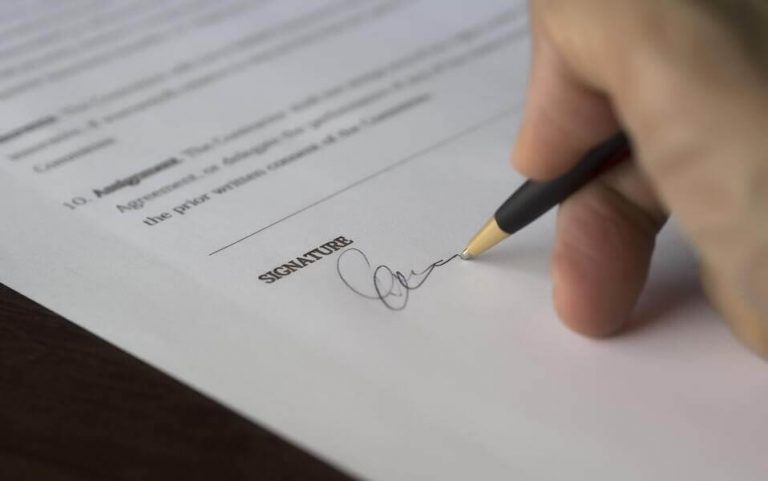No question about it, getting into commercial real estate can be intimidating. You may not know what specifics to ask about when buying commercial property, or how to find commercial property for sale near you. Here are some steps to bear in mind when getting into the commercial property market.
1. Educate Yourself on the Process
There are plenty of educational resources out there to teach you about buying commercial property. You could spend years diving into all the books, online courses, podcasts, and articles out there, but you don’t have to. Start by checking out these resources.*
Podcasts
- BiggerPockets1
- Lighting Up Real Estate With Candle Lockett2
- The Commercial Real Estate Show3
- CREative Talks! Commercial Real Estate Podcast4
Books
- The Millionaire Real Estate Agent, Gary Keller
- The Commercial Real Estate Investor’s Handbook: A Step-by-Step Road Map to Financial Wealth, Steven D. Fisher
- The Only Woman in the Room: Knowledge and Inspiration from 20 Women Real Estate Investors, Ashley L. Wilson
- The Book on Rental Property Investing, Brandon Turner
- Long-Distance Real Estate Investing, David Greene
Speaking face-to-face with someone who has experience in commercial real estate is another excellent way to gain knowledge. You can ask questions and learn directly from people who have been in the game for a while.
Whichever approach you take, remember that every individual has their own techniques and strategies when purchasing commercial real estate properties. There is no single way to be successful in real estate. Your best strategy depends on your finances, your goals, and how much time and money you can invest.
Part of being well educated on real estate includes staying abreast of current trends in the market. For example, the coronavirus pandemic has had a weighty impact on the commercial real estate market. Some businesses closed their doors permanently,5 leaving commercial landlords with vacant offices and little hope of new renters filling the spots any time soon. Many employers discovered that their employees were working effectively from home, and thus decided to forego an office space in favor of a permanent remote-work policy. Rent deferrals and tenant bankruptcies at the start of the pandemic disrupted commercial and residential landlords. Almost a year into the pandemic, it remains unknown how all of these changes will affect the future of real estate.
2. Decide on a Property Type
After learning about buying commercial property tips, you’ve probably realized that there are many different ways to invest in commercial property. Some people choose to invest in retail and mixed-use buildings, while others might prefer to buy commercial property to rent out. There are benefits and drawbacks to each type of commercial property type.
Some commercial properties you may consider are:
- Office buildings
- Multifamily units
- Warehouses
- Malls
- Industrial buildings
- Retail spaces
- Hospitality buildings (including hotels or other nightly rental properties)
- Apartment complexes
- Mixed-use buildings
There is no perfect strategy when choosing a property type. You’ll need to ask yourself what you want to use the property for and what your risk tolerance is. If you are interested in buying commercial property to live in now and rent out later, then you’ll need to choose property that fits your needs and can be rented out later on.
As you weigh the pros and cons of each property type, don’t forget to consider the cost of insuring the property. Property insurance is important, and it can have a huge impact on the costs associated with your investment. Some types of property are not desirable for commercial insurance in some locations. You need to know this before you make a decision.
Commercial property insurance helps protect you and the income you make from your property. Learn more about commercial property insurance here.
3. Learn How to Calculate Risk and Return
There is a lot of jargon in the commercial real estate industry, and it can take time to learn it all. For example, do you know what underwriting commercial real estate investments is?
Underwriting investments is when a loan application is analyzed for risk. It takes place when the lender looks at your credit history and the value of the property to determine if the risk of lending you money is worth it. It’s necessary to have a general idea of underwriting (or calculating risk) before approaching a lender.
Many commercial real estate investors use spreadsheets that help them quickly run formulas and determine the risk/reward of a purchase. These charts typically include the purchase price of the property, the estimated rehab cost and time, the projected rent, and financing. They may also factor in insurance risks, such as the risk of natural disaster or the age of the building and risk of structural failure. If you know how to calculate the risk and return of a property, you will be able to know if a property is worth going through the underwriting process.
This is the time to evaluate the risk a lender could face in lending to you. Are your personal and business credit scores healthy? Will a lender feel comfortable giving you a loan? Check your credit and be aware of it before purchasing. You don’t want to get any dings to your credit before buying commercial property.
4. Build Your Team
You don’t have to go through the process of buying commercial property on your own. Finding a team of professionals will help free up your time and ensure that you make good investment decisions.
Your team may include a:
- Commercial Realtor
- Accountant
- Tax attorney
- Contractor
- Property management company
- Commercial real estate attorney
- Commercial lender or mortgage broker
- Commercial insurance agent
5. Research, Research, Research!
If you find a property that looks promising, resist the urge to fall in love with it right away. First, there is much research to be done on the property. If you’re working with a commercial realtor, they will be able to help you, but it’s still good to know what questions to ask when buying commercial property.
You should find answers to these questions:
- What was the property used for in the past?
- Why is the owner selling?
- What use is the property zoned for?
- Is it possible to request a change in zoning if you need to?
- How much income or rent is the property currently earning?
- What are the lease terms of any leases?
- How much are property taxes on the property?
- What type of repairs does the property require?
- Is it located in a desirable area?
- Are there any major changes taking place around the property/in the area?
- Does the property make sense for your goals?
Make an Offer
If everything lines up with the property, you can make an offer. Tell your lawyer before you do anything, because your lawyer may have you sign a letter of intent regarding the property and any contracts involved with the property. Putting together a letter of intent helps protect you. Make sure you understand your rights and obligations before agreeing to or signing anything.
Making an offer can be nerve-wracking, but it’s also exciting. Remember that making an offer is just the start of the purchasing process, so you’re not locked in just yet. There’s still the due diligence process to go through and a lot of waiting time.
It’s true that entering the commercial real estate industry can sometimes be overwhelming, but when you follow a buying commercial property checklist, you’ll be prepared to make good buying decisions at the right time.
*The referenced resources are not related to the Woligo brand, and their inclusion in this article is in no way a promotion of the ideas discussed in the podcasts and books.
Sources:
- https://www.biggerpockets.com/podcast
- https://podcasts.apple.com/us/podcast/lighting-up-real-estate/id1503721397
- https://commercialrealestateshow.com/
- https://podcasts.apple.com/us/podcast/creative-talks-commercial-real-estate-podcast/id1505494311
- https://www.investopedia.com/commercial-real-estate-s-coronavirus-reckoning-5087824


